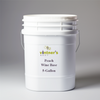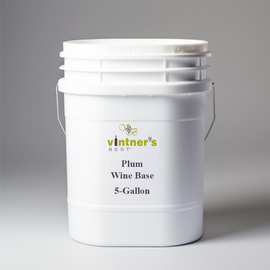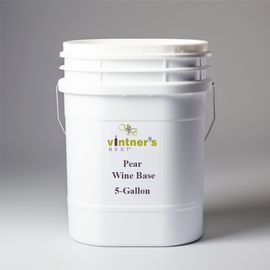Vintner's Best Peach Fruit Wine Base 5-Gallon Pail
Brand : Vintners Best
- SKU:
- 3922B
- UPC:
- 888690039223
- Shipping:
- Calculated at Checkout
Your Vintner's Best Peach Wine Base 5-Gallon Pail is a blend of sugars, juice concentrates, fruit acid and natural flavors combine to make a fermentable base for Peach wine blend at 18.9B or 10.7% ABV. This product is blended, pasteurized, filled into gallon containers and can be stored at ambient temperature. Diammonium phosphate is added as a yeast nutrient.
Your Vintner's Best Peach Wine Base is perfect for making your favorite varietal wines all year long. Your wine base is made from all natural fruit juice and does not need to be strained or placed into any sort of mesh bag! Start making your favorite varietal wines today.
No pH or acid adjustments are required. Acidity: 2.4; 2.2 - 2.6 % w/w (as citric acid) (AOAC Method 942.15)
Ingredient List : High Fructose Corn Syrup; Apple, Pear & Peach Juice Concentrates; Water; Citric Acid; Malic Acid; Natural Flavors.
INSTRUCTIONS
Add 20 gallons of water to 5 gallons of concentrate and pitch your favorite yeast to make 25 gallons of wine. Distilled water is your best choice because it is guaranteed to be pH neutral which will not throw off the acidity of your wine. If you cannot get distilled water, you can use regular bottled water however, it could make your wine more tart if it is acidic. Tap water is not recommended.











